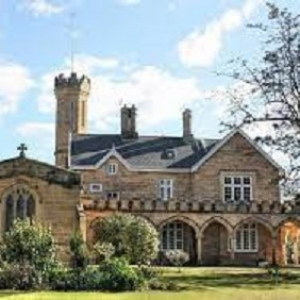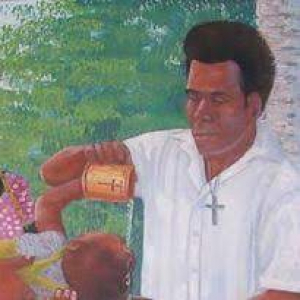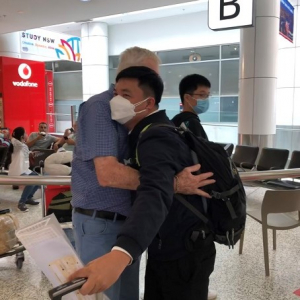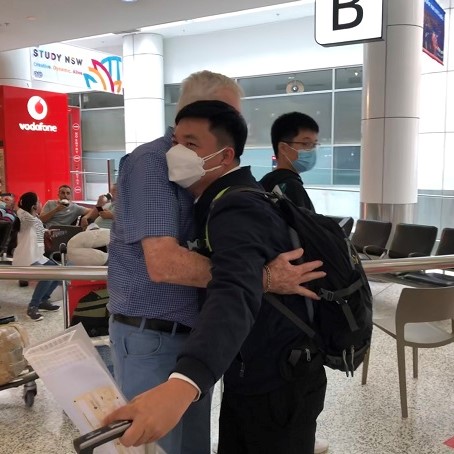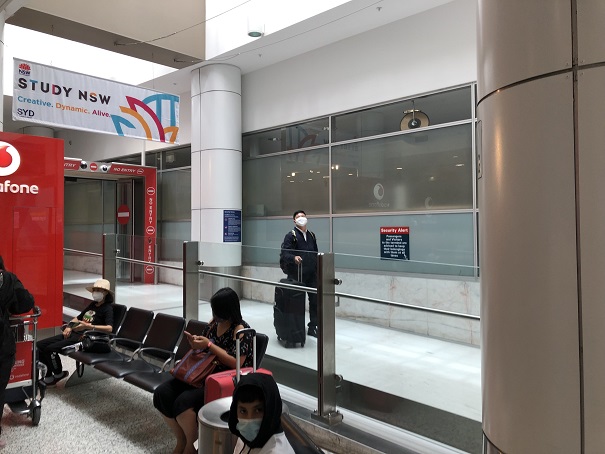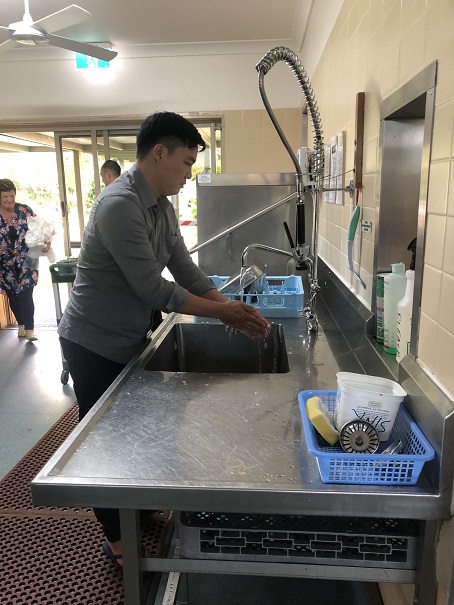Peter MALONE
Scenes from a Marriage/ US
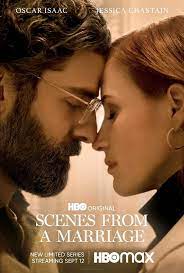
SCENES FROM A MARRIAGE
US, 2021, 5 episodes, 280 minutes, Colour.
Oscar Isaac, Jessica Chastain, Sofia Kopera, Nicole Beharie, Corey Stoll, Tovah Feldshuh, Michael Aloni.
Directed by Haggai Levi.
Scenes from a Marriage is based on the 1973 Swedish television series of the same name, written and directed by the classic film director, Ingmar Bergman, starring Liv Ullman and Erland Josephson.
This version has been adapted for the television screen by Israeli director, Haggai Levi, the originator of the Israeli television series which became the American In Therapy. He has directed both in the US and in Israel.
This time the stars are Oscar Isaac and Jessica Chastain, working excellently with each other and off each other. They portray a husband and wife who have known each other for 12 years, married for 10 years, with the young daughter. The action takes place over the succeeding five years.
The American version has five chapters compared with the Swedish version’s six. And the five American chapters retain the same names for each scene from the Swedish titles. However, the series opens, especially the first three scenes, showing the actors, the sets, the actors proceeding to the sets with make up… And then moving into action. And the series ends with the two actors leaving the set, walking together towards their dressing rooms.
The first scene offers a lot of information, a marriage researcher questioning the couple about the qualities of their marriage, then a sequence where friends come for dinner and there is a clash of moods and opinions about fidelity in marriage, and then a final sequence where the wife, Mira, tells her husband, Jonathan, that she is pregnant.
The second scene is something of a surprise, Mira having gone back to work, successful and being promoted, and beginning a relationship with a younger fellow worker. The news and Mira’s explanations have quite a devastating effect on Jonathan, intense clashes. And this continues into the next two scenes, Jonathan’s reaction to his situation, his devoted care for his daughter, Mira explaining that she has been offered another promotion. However, the next scene moves on to preparations for a divorce, the selling of their house and packing up all the possessions, issues of signing contracts or not.
The final scene is brief, Jonathan returning from his father’s funeral – one of the few sequences outside the house. But, then the film returns to the house, the final meeting between Jonathan and Mira, and the realisation that despite their love for each other there will be no marital reconciliation, something of a deranged and complex devotion to each other.
Intense viewing.
- Quick The impact of a five-part television series? Chapters, themes, the passing of time, issues?
- The origins of the series in Ingmar Bergman’s Scenes from a Marriage, Sweden, characters, situations, the transition to the US in the 21st-century? The Israeli writer-director and his perspectives?
- The openings of the first three episodes, the actors, the sets, their being brought onto the sets, and the transition to performance? The finale and the two walking out together and to their dressing rooms?
- The strong cast, the effectiveness of Oscar Isaac and Jessica Chastain? Working with each other, off each other?
- The visuals, the interiors of the house, some of the chapters confined to the house, to the downstairs rooms? Venturing out of the rooms, Jonathan and his father’s funeral and the car ride with his mother? The end and his going to his car, watching the removalists’ van, driving off? The musical score and its tone? Songs, Opera excerpts?
- Scene one: Innocence and pain, the researcher, the questions and answers, Ava interrupting, the couple alleging being happy, knowing each other for 12 years, married for 10, the way of elaborating the history through the questions? Jomathan’s needs in the questions and answers, Mira and her deference to Jonathan? The domestic detail? Jonathan as Jewish, academic, asthma? Mira and her work, time off for caring for Ava? Visit of Peter and Kate, the conversations, their situation, both married, their affair, the drinking, discussions, arguments, fidelity? Kate and the bond with Mira, Kate upset, going upstairs, their talk? Peter and his drinking? Their leaving, upstairs, the revelation of the pregnancy, each deferring to the other, issues of age, not knowing what they thought? Going to see the doctor, the examination, discussion, the Coca-Cola, Mira dizzy, the reassurance of the doctor?
- Scene two, Poli? Seeing Jonathan as a good father, spending the time with Ava because of academic flexibility, Mira at work? Her sudden arrival home, tension, references to Poli, her gradually admitting of the affair, the detail, her job, when and how to tell Ava, arrangements for Ava? The back-and-forth of the conversation, anger, dismay, intensity? Mira saying she was stifled, wanting freedom, loss of love for Jonathan? The issue of the abortion, the motivation? Getting into bed, the intimacy, the discussion, the bewilderment? Her story, Poli as 29, details about him? The audience stances, judgement or not, towards Mira and her choices? Jonathan as victim?
- Scene three: the Vale of Tears? Jonathan home, Ava, his rediscovering his Jewish background? The reason for Mira’s visit, the offer of the job in London? The range of options, even Jonathan and Ava going to London? His refusal? Discussions about care and visits? The psychological situation, Jonathan and therapy, reading his text aloud, her comments? Tension, the sexual encounter on the floor? The background of the history of attitudes to sexuality, Jonathan and his narrow Jewish behaviour, going to have the shower? The issue of his wanting children, possibilities for IVF? His smoking again? The growing intensity of the arguments?
- Scene four, The Illiterates, the house, for sale, the packing, the stickers, the issue of the contracts, Mira having read them but refusing to sign, her attitude towards divorce, Jonathan wanting yes or no? The revelation that she had been fired? The effect on her? The phone calls to Ava, her babysitter? Mira eventually arguing, signing the documents, hitting Jonathan?
- Scene five, In the Middle of the Night, in a Dark House, Somewhere in the World, opened out, the Jewish funeral, Jonathan driving his mother, interrogating her about the marriage, her defensiveness, his attitude towards his father? His arriving, Mira picking him up, the surprise, going to the house, transformed by new owners, Air BnB, an opportunity for remembering, the talk, being alone, sexual attraction, behaviour? The issue of whether there would be any future? The surprise visit? searching the house, memories and change? Jonathan and the phone call, the revelation that he had a son, his joy, finally revealing this to Mira? Upstairs, the lights and the music, no more moral superiority, freer attitudes, affairs? The Jewish background, Ethan’s mother as Jewish? The split with Poli, the scene at the restaurant, his attitude, the audience seeing him for the first time? Their staying in the house, the Jewish tradition of Shiva for seven days, each of them with their dreams? The end of trauma? And accepting that they would always love each other in a deranged kind of complex way?
Sympathy for St Mary’s Towers, Retreat House, director and staff. And solidarity.
Sympathy for St Mary’s Towers, Retreat House, director and staff. And Solidarity.
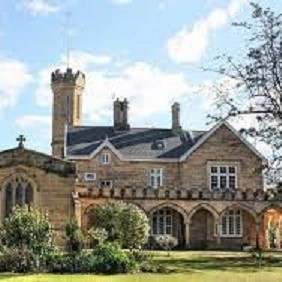
With the extraordinary infection rate from Omicron in NSW, we know not the day nor the hour.
Which means sad news that the 2022 30 Day retreat was about to start this week – high hopes because the retreat had to be cancelled this time last year - one of those booked in for the retreat was in contact with an infected person and, when tested, was positive. Retreat cancelled again, sad news for the retreatants and the directors. Putting in question future programs and isolation.
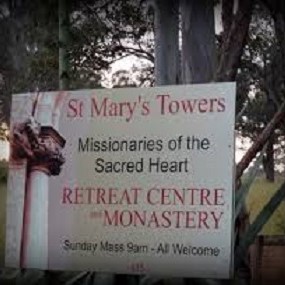
Our best wishes to Michael Sims MSC (who was cancelled last year) but arrived early this year – perhaps some retreat and isolation.
So, 2022, first week, and already uncertainties and cancellations.
Our Website – new translation options.
Our Website – new translation options.

We have recently added an opportunity to translate our posts into several languages. With thanks to Matt Price and Brett Adamson.
Click your item, go to the bottom of the page and see the list of languages for your choice.

English Arabic Chinese (Simplified) Dutch Filipino French German Greek Indonesian Portuguese Spanish Vietnamese
The translation comes quickly.
AND NOTE: when you have finished, just click English.

We hope that this will widen our readership and visitors being comfortable in their own languages.
Significant Days for the Chevalier Family, January 2022
Significant Days for the Chevalier Family, January 2022
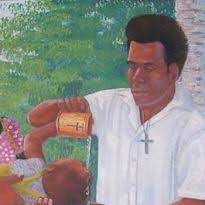
Cause of Peter to Rot, see January 13th
MSC Pioneers:
Archbishop Couppe MSC, See January 15th and January 31st
Archbishop Navarre, January 16th
Fr Hubert Linckens, January 29th
Bishop Verius, January 20th and January 31st
1 January,
Motherhood of God
First Sunday in January,
Feast of the Epiphany - one of Chevalier's favourite feast. The true nature of God is manifested through the flesh of the infant Jesus.
10 January, 1854
Father Maugenest, 1829-1919, is appointed curate of Issoudun.
10 January, 1979

The FMI Sisters ~ The Daughters of Mary Immaculate ~ founded by Bishop Louis Couppé, MSC, in Papua New Guinea in 1912, elect their first General Superior. Since their foundation a FDNSC sister had been their 'Superior'.
12 January, 1877
The first MSC Constitutions are approved for 10 years by Rome.
13 January, 1985

The cause for the canonization of the lay Papua New Guinean catechist, Peter To Rot, is opened.
13 January,
World Day for Migrants and Refugees ... Chevalier responded to the evils of his time. In our time, we respond to the inhumanity of our world ... with compassion of the Heart of Jesus.
15 January, 1927
Archbishop Couppé, MSC, who died 20 July 1926 at Douglas Park, Australia, is reburied at Vunapope, Papua New Guinea.
15 January, 1930
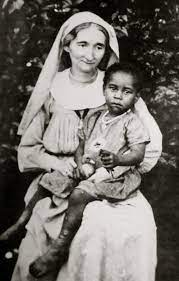
Marie-Thérèse Noblet dies. She was Mother of the Handmaids of the Lord, who were founded in Papua New Guinea by Bishop Alain de Boismenu, MSC, in 1920.
16 January,
Anniversary of Archbishop Navarre, MSC, vicar apostolic of British New Guinea.
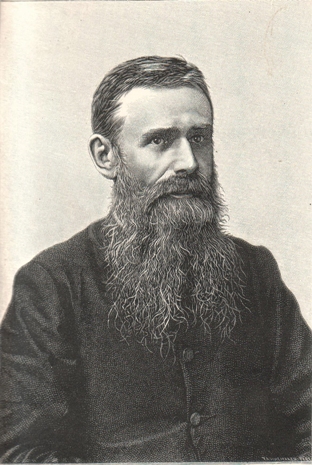
20 January, 1925
The cause of beatification of Bishop Henri Verjus and of the Baining martyrs is introduced.
21 January, 1852
The young Father Chevalier receives his second appointment after ordination. He becomes assistant priest at Châtillon-sur-Indre.
21 January, 1907
The aged Father Chevalier and his curates are expelled from their home, the presbytery in Issoudun.
22 January, 1811
Jean-Charles Chevalier and Louise Ory, the parents of Father Jules Chevalier, are married in Richelieu.
24 January,
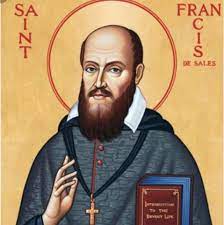
Feast Day of St Francis de Sales (1567-1622). The 'heart' is the central image for Francis and Jane de Chantal, in their attempt to portray who God is, who the human person is and how they are intimately related. Both these figures appear in stain glass windows in the Richelieu Church.
29 January, 1861
Birth and Baptism of Father Hubert Linckens, MSC, in Wijlre, Netherlands. Linckens is the historical founder of the Missionary of the Sacred Heart Sisters of Hiltrup.
31 January, 1885
The first five Daughters of Our Lady of the Sacred Heart arrive in Australia, accompanied by Fathers Couppé, and Verjus, and three Italian Brother Novices.
Hypnotic
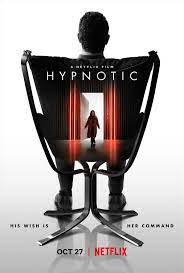
HYPNOTIC
US, 2021, 88 minutes, Colour.
Kate Siegel, Jason O'Mara, Dule Hill, Lucy Guest, Jaime M. Callica, Tanja Dixon-Warren, Luke Roderique.
Directed by Matt Angel, Suzanne Coote.
Hypnotic offers a variation on the theme, the vulnerable patient and the dominating doctor. From the title, it is clear that the impact will be of hypnosis attitudes in psychological sessions, manipulation by the doctor, compensations.
Kate Siegel has appeared in a number of her husband’s, Mike Flanagan’s, films and series like Midnight Mass. Jason O’Mara is an Irish actor. Dule Hill appeared to some note in the West Wing.
The setting is the contemporary American city, adults, relationships, death of a child, work ambitions, vulnerability and attending psychology sessions and hypnosis – leading to the detective, and a dramatic explanation and melodramatic ending.
- The title? The role of hypnotism? Psychological use? Subjects and the effect?
- The American city, apartments, psychologists’ rooms, police precincts, restaurants, socials? The world of the psychologist? Jenn’s business world? Musical score?
- Jenn’s story, her relationship with Brian, the death of the child, psychological effect, separation? Friendship with Gina and Scott? The social, the encounter with Colin Meade, friendship, the invitation to the session, her acceptance, hypnosis, short time experience of an hour, surfacing aspects of her life? Getting a new job, continuing the sessions, on and off, the encounters with Colin?
- Colin, background, psychologist, schools in hypnosis? The revelation about his father, his work, methods, Colin measuring up to him, tutored by him, applying his principles?
- Jenn, the relationship with Colin, the intensity?
- Colin, his personality, the sessions, dominating Jenn, the influence of Gina and Scott, in the car, the hypnosis, her phobia about spiders, the crash?
- Collin’s wife, similarities to Jenn, two other victims, his wanting to recreate Jenn in the image of his wife?
- Jenn, her fears, going to see Detective Rollins, his previous investigation of the deaths of Colin’s clients, the visits, the stakeouts?
- Colin, shrewd, menacing Jenn, the information about his father, the house, taking Jenn to the house? The confrontation with the directive direct Detective?
- The popularity of this theme of sinister doctor and his preying upon his patients?
Worst Person in the World, The
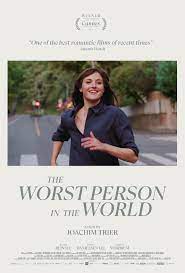
THE WORST PERSON IN THE WORLD
Norway, 2021, 127 minutes, Colour.
Renate Reinsve, Anders Danielson I, Maria Grazia di Meo, Herbert Nordrum, Hans Olav Brenner.
Directed by Joachim Trier.
Norway’s nomination for Oscar for Best Foreign Language Film. Renate Reinsve won the award for Best Actress at the 2021 Cannes Film Festival. The film has received general acclaim.
It is very much a film for audiences in their 20s, 30s, 40s. Younger audiences will probably not identify with characters and situations. Older audiences will look back, sometimes with regrets, sometimes with irritation at the character of Julie, her life and choices.
Julie is not the worst person in the world. She is certainly not the best person in the world. But, as we go through the situations with her, she could certainly improve. The film is divided into 12 chapters with the prologue and epilogue – and the heading of one of the chapters includes the word narcissistic. Julie is self-absorbed, flits from one occupation to another, plunges headlong into a relationship and tires of it before she explains the reasons for breakup. She really doesn’t want to marry. She doesn’t want to have children. She is satisfied with coasting along, initially happy in relationships, then, not necessarily unhappy, but distracted into a new relationship.
The setting is the city of Oslo, plenty of views to make the audience feel at home or interested in a visit there.
Julie is supported by her mother, alienated from her father, studying surgery, then on a whim deciding on psychology, then in flighty mode deciding on photography. She does continue to take photographs but works in a bookstore.
At a social, she is attracted by Aksel (a very sympathetic portrayal by Anders Danielson Lie), who creates graphic comics, a disrespectful but cheeky character, Bobcat, who is being adapted for the movies, Aksel not satisfied. He is in his 40s, has a desire for children, while Julie is 29 and still freewheeling. The couple do have some intimate moments but not enough to contain Julie’s roving eye, attracted to a young man who serves coffee and a bar, Eivind (Herbert Nordrum). For him the relationship is important. For a time Julie thinks it is but it is really only just a step to the next relationship, her wounding the feelings of both Aksel and Eivind in her seeming carelessness.
The film does express some hope in Julie and her future, most movingly in some final sequences where she goes to meet Aksel in hospital, is moved by his illness, remembers their past intimacy, has regrets.
But, since Julie is entering her 30s, her life before her, her mistakes behind her, the audience is left to wonder what kind of life she will have, not the worst person in the world, and certainly not the best.
- The title? As applied to Julie? Not the worst, not the best? Her qualities, her flaws?
- The film as a portrait of Julie, prologue, 12 chapters, epilogue?
- Julie, her age, the background of her mother support, alienation from her father (and her image of him in her mushroom induced dream)? Intellectual abilities, talent? Studying surgery and her presence during an operation, the shift to psychology and going to classes (and condemning the students having food disorders), buying the camera, photos, getting her job in the bookshop?
- The social, the encounter with Aksel, talking, his personality, in his 40s, his family background, achievement, living alone, past relationships, his drawing the graphic comics, his character, Bobcat, and the later visualising of the animation, Aksel’s disapproval of the film version?
- Aksel taking her to his relatives and friends, her being bored, playing with the children, the wife and the discussion and tantrums? Later meetings with them? And the husband finally giving her the information about Aksel’s illness?
- Julie moving in, the relationship, their discussions, the difference in ages, Aksel and settling down, need for family? Julie, restless, not wanting children? The depth of the relationship? Yet her roving eye, seeing Eivind, talking, the attraction, his returning to the bookshop for his glasses, later meetings, is serving coffee (and Julie is later talked about this and his being hurt)?
- Julie, moving out, explanations to Aksel, not telling the truth, later admitting the truth to him? Moving in with Eivind? The nature of the relationship? Intimacy?
- Eivind, his girlfriend, yoga, the photos, the trek in the mountains, the social causes, her campaigns? Julie ridiculing the photos?
- The news of Aksel’s illness, going to see him, his condition, his frankness, reminiscing about the relationship, the effect on Julie? His memories of happiness? Of the conversations? The news of his death?
- Julie, the possibility of pregnancy, the photographing the scene with the actress who resembled her? Looking at the window at the event and his pregnant girlfriend?
- Into her 30s? Her future? Not necessarily the worst person, nor the best?
Harry Potter: the Return to Hogwarts
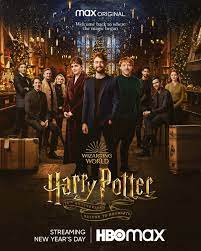
HARRY POTTER: THE RETURN TO HOGWARTS
UK/US, 2022, 90 minutes, Colour.
Directed by Eran Creevy, Joel Pearlman, Georgio Testi.
On the occasion of the 20th anniversary of the release of the first Harry Potter film, Harry Potter and the Philosophers Stone, here is an opportunity to meet Daniel Radcliffe, Emma Watson, Rupert Grint, in conversation, reminiscing about the 10 years of their lives in making the Harry Potter films.
There is some complaint about the presence and non-presence of J.K.Rowling, especially in view of the more recent controversies and her views on gender. However, the filmmakers have incorporated some comments from the archives on the making of Harry Potter.
Interestingly, the four directors who participated in the making of the film is have significant interviews, especially American Chris Columbus, director of the first two films, in conversation with Daniel Radcliffe. There are clips of his direction. This is also true of Mexican Alfonso Cuaron, director of the Prisoner of Azkhaban, jovial interviews with Mike Newell and his humorous wrestling match with one of the Weasley twins and breaking his ribs, and rather more serious comments from David Yates, the Director of the final films. Also present is the producer, David Heymann.
Everybody will have hopes for who will be present and interviewed. Other characters, like the deceased Alan Rickman as Snape, Maggie Smith, Michael Gambon, are seen in sequences. However, there are substantial interviews with a very genial Robbie Coltrane, an intelligent Ralph Fiennes and his interpretation of Voldemort, Jason Isaacs on how to interpret Lucas Malfoy, the presence of Tom Felton in scenes as well as his reflections on his 10 years of filmmaking. Gary Oldman appears, in conversation with Daniel Radcliffe, remembering the making of the film as well as a plot developments. And Helena Bonham Carter turns up full of expected vigour and mischief.
Mark Williams is there commenting about the Weasleys, but only glimpses of Julie Walters, the twins who played the twins, Bonnie Knight who played the daughter. Some comments from Toby Jones and Ian Hart.
With the film going over the making of each of the films, the development of the plots and characters, the film serves as a happy reminder of the plot of the Harry Potter series. A chance to relive these stories, however briefly.
In reflecting on the Harry Potter films and their enormous success as well is the effect that they had on children reading in the 2000s, J.K.Rowling has contributed a great deal of imagination to a generation (and their parents and, to follow, their children).
Of the three central characters, it is Rupert Grant who comes across most effectively, pleasant, humorous, down-to-earth, most likeable. Emma Watson is, as might be expected, rather Hermione-serious. And Daniel Radcliffe comes across as might be expected.
With its comparatively brief running time, many audiences will be tempted to watch the documentary again – and again.
Tueurs/ Above the Law
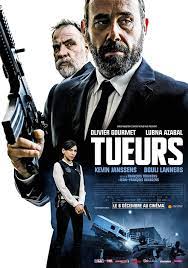
TUEURS/ ABOVE THE LAW
Belgium, 2017, 86 minutes, Colour.
Olivier Gourmet, Lubna Azabal, Kevin Janssens, Bouli Lanners.
Directed by Jean-François Hensgens, François Troukens.
This is a tough Belgian crime drama, based on a crime spree in the 1980s, the Brabant Killers. There were arrests at the time, murders, including a judge investigating a case.
Decades later, there seem to be a repeat of these crimes.
The focus of attention is on a criminal and his potential involvement – and his stances in later decades. His played by prominent Belgian actor Olivier Gourmet.
The impact of the film will be strongest in Belgium but it takes its line in the tradition of tough French-language crime thrillers.
- Belgian crime drama? 1980s? Government? Terrorists? 30 years later? Corruption? Cover-up?
- The title, the killers? Ruthless killings? Power?
- The Belgian setting, the city, the countryside? Parking areas, the streets? Police precincts? Stage robberies? Stage massacres? The musical score?
- The opening, the stakeout in the parking area, the judge, contacting the police, the cars, the masked killers, the assassinations? The move to 10 days earlier, the role of the judge, informant, the minister and exposure, police investigations?
- Frank Valdek, his role in the 80s, his squad, military, power, escape from jail, his colleagues, the setup of the robbery, success, the escape, the pursuit, the shootout, the death of his colleague, Frank escaping, his relationship with his wife, family? His being captured, interrogated, in prison?
- Lucie Tesla, police, contact with the judge, with Bouvy? The squad for investigation? Tesla’s suspicions, being thwarted, the contact with Frank, in the car with him, the shootout, the death of big, her going to the prosecutor, reporting to him, with Bouvy? Her life in danger, shot at?
- The background of the 1980s, The Killers, motivations, the disappearance? The death of the judge, the situation contrived that The Killers would be blamed? The execution of the judge?
- Frank, in jail, his contacts, his escape, rounding the gang, to prove his innocence of the murder of the judge?
- The journalist, the contact with Tesla, the informant, the chauffeur of the corrupt minister? Bouvy, tracking him down, executing him?
- Frank, escape, on the motorbike, shooting the prosecutor, giving the information to the journalist?
- Brief, fast-paced, audience need for more information about situations, background and characters?
Girl in the Box, The
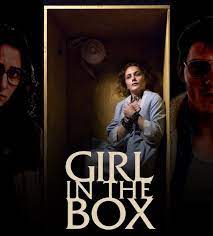
GIRL IN THE BOX
Canada, 2017, 87 minutes, Colour.
Addison Timlin, Zane Holtz, Zelda Williams.
Directed by Stephen Kemp.
Girl in the Box is based on a true story, 1977, the area between Oregon and northern Carolina. Several documentaries were made about this story, including one in which the victim, Colleen Stan, revisited her past.
She is played by Addison Timlin, hitchhiking to visit family, picked up by a couple, young and with charm. They imprison her, often in a coffin like box for after 23 hours a day. She becomes their slave. The young man of the couple is addicted to sexual violence. The young woman eventually has some more compassion.
This is a Lifetime movie, made for the wide audience, a mixture of the realistic as well is the sensational – but sympathy for the young woman who had to undergo such experiences.
- The title, literal?
- The American countryside, the deserts of California, small towns, factories and workplaces, the highways, the forests? The musical score?
- Based on a true story? The 1970s and 1980s?
- The opening, Cameron and Janice, the killing of the young woman, her screaming, burying her? Cameron and his callous attitudes, explanation of his interest in bondage, as a young boy, his experiments when young with Janice? Abducting women for bondage? His relationship with Janice, marrying her, her being subservient to him? The set up in the house, his going to work, casual and the next door neighbour?
- Janice, the rosary beads, the Bible, the long association with Cameron, love for him, subservient, as a slave? Collaboration in the bondage and whipping? The burial of the girl, her conscience? The abduction of Coleen? Her mixed feelings, dislike of Coleen, growing jealousy? The issue of pregnancy, giving birth? Her going to work?
- Colleen, her intentions, 20 years old, on the road, abducted, confined to the basement, the box, the bondage, her being whipped? Cameron and his using her, Janice and her mixed feelings? Subservient, the days passing, the years passing? Cameron and his story of the Company, slavery, the document and her signing, his terrorising her about escaping? Yet her getting more freedom, working around the house, meals? Cameron barking attention and her having to strip? Calling him master, calling Janice Mamme? Colleen’s loss of a sense of time, except for the birth of the baby, Amber growing up? Playing with Amber? Subject of Janice’s jealousy?
- The growing tension between Cameron and Janice, the sexual issues, his relationship with Coleen? Calling her K? Janice eventually wanting to move out, telling Coleen the story of the former girl, their praying together?
- Coleen’s nightmares – and her confessing to the priest?
- Cameron, Coleen moving more freely, working outside, going to the forests to cut the timber, possibilities of escape looking at the road, staying? Cameron and his leg wound?
- The visit to her family, the conditions, Cameron’s pressure, charm with the family, their being glad to see Coleen, her sister’s suspicions and questions? An assumption that she was part of a cult?
- Cameron, his mixed reactions after the visit? Wanting Coleen to himself, the cabin? His turning on her?
- Janice, leaving, putting Coleen on the bus?
Welcome to Long and his arrival from Vietnam
Welcome to Long and his arrival from Vietnam
Long arrived safe and sound in the afternoon with welcome from Frank Dineen- vocation director and Trieu.
He then went to stay with the community in Douglas Park. He will probably stay there for a month under Dominic's charge.
He will then come to Cuskelly House, Blackburn for his English studies at The English as a Second Language at the Yarra Theological Union. He has been studying via Zoom in 2021.
A photo a few days later indicates that he has settled in at Douglas Park! (Photo credits: Trieu)
